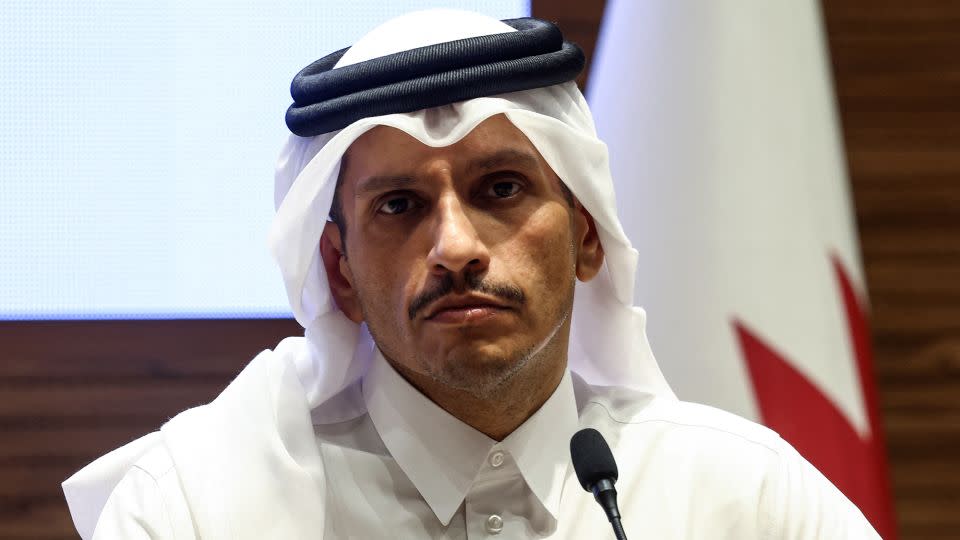Why Qatar is unlikely to withdraw from the Gaza hostage-ceasefire talks
The Arab nation of Qatar’s declaration this week that it is reconsidering its role as the key mediator between Israel and Hamas amounted to a public declaration of frustration at criticism of its ties to the Palestinian militant group.
Qatar’s mediation efforts are being misused for “narrow political interests” by some involved in the conflict, Prime Minister and Minister of Foreign Affairs Sheikh Mohammed bin Abdulrahman Al Thani said Wednesday, “which required the State of Qatar to conduct a comprehensive evaluation” of its mediation role.
“There are limits to this role, and limits to our ability to constructively participate in these negotiations,” Al Thani told a news conference in Doha, adding that his country is forced to do this despite hostage-ceasefire talks being at a “sensitive and delicate stage.”
But analysts say the Gulf state is unlikely to completely pull back from the talks.
A close ally of the United States, Qatar has been coordinating with Washington and Egypt to secure the release of the more than Israeli 100 hostages in Gaza, as well as end Israel’s war in the territory.
Qatar has come under criticism from Israel and its allies in the United States Congress, who have accused the Gulf state of being too close to the militant organization, and even of blocking negotiation progress. Doha has repeatedly pushed back against the accusations since the onset of the conflict.
Some analysts say that Qatar is the only interlocutor capable of delivering a deal due to its ties with Hamas and alliance with the US. Qatar hosts Hamas’ political office, but it is also home to a 10,000-troop US military base.
Experts say it is unlikely Qatar will end its mediation role.
“I think that they will try and help, and try and mediate, as long as they can,” said Anna Jacobs, senior Gulf analyst at the Brussels-based International Crisis Group think tank, adding that Qatar is however concerned about the criticism from US politicians. “They’ve had to confront it for a while,” Jacobs told CNN.
Daniel Shek, a former Israeli diplomat, said he is doubtful that Qatar will retreat from the role. “I think they are actually enjoying the spotlight,” Shek told the Israel news outlet i24News, adding that while there are other players that can mediate, Qatar has “the best position to play in this negotiation.”
Qatar has maintained a relationship with Hamas since 2012, after falling out with some of its Arab neighbors for supporting protesters seeking to overthrow the regimes in several Arab nations during the Arab Spring.

While American and Israeli politicians have been raising criticisms of Qatar since the start of the October 7 war, the Gulf state this week appeared to have had enough, accusing some politicians of capitalizing on the conflict to prop up electoral campaigning at home.
“We are seeing political bidding by some politicians, with narrow political gains, who are waging their electoral campaigns by offending Qatar’s role,” Qatari Prime Minister and Minister of Foreign Affairs Sheikh Mohammed bin Abdulrahman Al Thani told a news conference Wednesday.
“This is completely unacceptable, for us to be told things in closed meetings and then for statements to be made that are damaging and unhelpful,” the prime minister said.
Questioning Qatar’s role
Israel has been questioning Qatar’s role in the talks for months. In a leaked audio from January, Prime Minister Benjamin Netanyahu was heard saying that Doha’s role was “problematic.” Majid Al Ansari, the Qatari foreign ministry spokesman, said his government was “appalled” by the comment and accused Netanyahu of “obstructing and undermining the mediation process for reasons that appear to serve his political career.”
On April 8, James Comer, the Republican chair of the US House of Representatives’ Committee on Oversight and Accountability sent a letter to Attorney General Merrick Garland, alleging that Qatar paid Hamas “$30 million per month since 2018.”
“Qatar does not pay Hamas,” the Qatari embassy in Washington DC responded on X the next day, adding that “misinformation” is unhelpful to the negotiations.
And on Monday, Democratic US Congressman Steny Hoyer accused Qatar of “blocking” progress in the talks.
Jacobs says that it is important to note which American politicians are voicing the criticism, adding that “many in Washington see the value of the Hamas relationship (with Qatar) and feel that if Qatar ended its role, then that would be harmful and not helpful.”
US President Joe Biden in November thanked Qatar for helping reach a humanitarian pause that allowed the release of some hostages.
Qatar is one of the closest US allies in the Gulf region. It is home to the Al Udeid Air Base, the biggest US military installation in the region and which houses more than 10,000 American troops. Earlier this year, the US quietly reached an agreement that extends its military presence at a sprawling base in Qatar for another 10 years. The Gulf state was also a Major Non-NATO Ally, as well as key energy supplier to Western states.
And despite coming under fire for sending hundreds of millions of dollars in aid to Hamas-governed Gaza over the years, it had done so with Israel’s blessing, and with the knowledge of Israeli Prime Minister Benjamin Netanyahu, CNN previously reported.
The Qatari prime minister’s decision to evaluate the country’s role in the talks is seen as “more of a way to highlight that they are frustrated with that criticism,” Jacobs said.
CNN’s Hamdi Alkhshali, Raja Razek, Larry Register and Mostafa Salem contributed reporting.
For more CNN news and newsletters create an account at CNN.com

